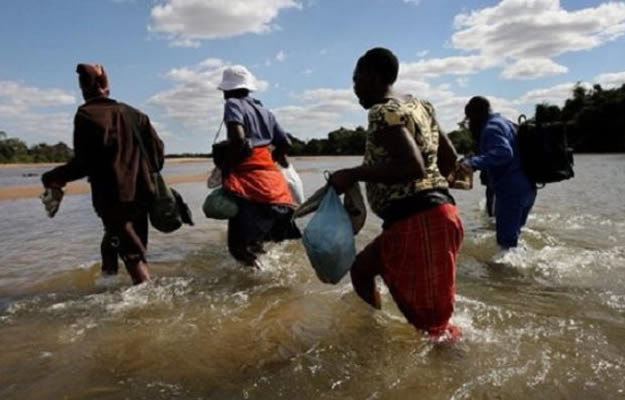A recent government report has revealed a staggering influx of foreign nationals into Gauteng province, with over 1.1 million foreigners now calling the province home. This figure, released by the Department of Home Affairs, has sent shockwaves through the province, sparking debates about the impact of immigration on local communities and the strain on resources.
The report, which was compiled using data from the 2022 national census, highlights the growing diversity of Gauteng's population. While the province has always been a magnet for migrants from across South Africa and the continent, the latest figures point to a significant surge in foreign nationals, particularly from neighbouring countries like Zimbabwe, Mozambique, and Lesotho.
"The data paints a clear picture of Gauteng's evolving demographics," said a spokesperson for the Department of Home Affairs. "The province is becoming increasingly diverse, with a significant number of foreign nationals contributing to its economic and social fabric."
However, the influx of foreign nationals has also raised concerns about the strain on public services, particularly in areas like healthcare, education, and housing. Some residents argue that the government is struggling to provide adequate resources for its own citizens, let alone the growing number of immigrants.
"It's no secret that our public services are already stretched thin," said a local resident who wished to remain anonymous. "With so many foreigners coming in, it feels like the government is neglecting the needs of its own people."
The report also sheds light on the economic contributions of foreign nationals, highlighting their role in various sectors like retail, construction, and manufacturing. Many businesses in Gauteng rely heavily on foreign workers, particularly in low-skilled jobs.
"Foreign nationals play a vital role in our economy," said a spokesperson for the Gauteng Chamber of Commerce and Industry. "They fill important gaps in the labour market and contribute to the province's economic growth."
However, the report also acknowledges the challenges associated with integrating a large number of foreign nationals into society. Concerns about illegal immigration, crime, and social tensions have been raised by some community members.
"We need to address the issue of illegal immigration," said a community leader who requested anonymity. "While we welcome those who come here legally and contribute to our society, we need to ensure that those who enter illegally are dealt with effectively."
The government has pledged to address the concerns raised by the report, promising to implement measures to improve border control, streamline immigration processes, and promote integration.
"We recognise the challenges and opportunities presented by this influx of foreign nationals," said a government spokesperson. "We are committed to working with all stakeholders to ensure that immigration is managed effectively and that foreign nationals are integrated into our society in a way that benefits both them and our communities."
The report's findings are expected to fuel ongoing debates about immigration policy in South Africa. While some argue that the country needs to adopt a more restrictive approach to immigration, others believe that a more inclusive and welcoming policy is essential for economic growth and social progress.










